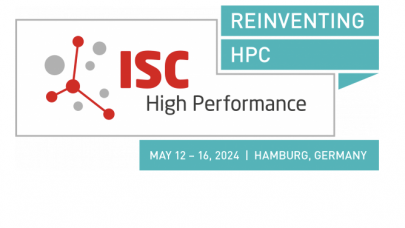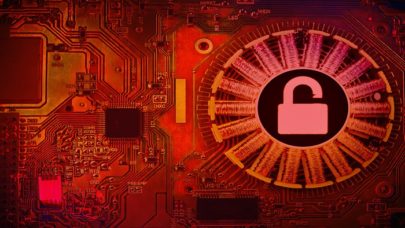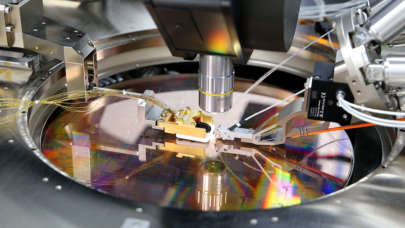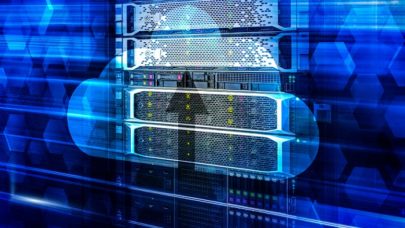Dell founder and CEO Michael Dell delivered the keynote address at the Supercomputing conference this morning in Austin, Texas, offering his perspective on where high performance computing is headed. We caught up with Dell shortly before the conference to get a preview of the keynote and to ask him about some of the hot-button issues that are driving the HPC industry today.
HPCwire: We’re almost certainly going to be in a recession in the U.S. and perhaps much of the world for the immediate future. How do you think that changes the HPC market? Or does it?
 Michael Dell: You’ll likely see an impact on funding. The global economic challenge is affecting every sector of society and business. It will place an even greater premium on productivity and efficiency — doing more with less. The democratization of supercomputing might even be accelerated as researchers and scientists take advantage of standards-based platforms to share compute capacity.
Michael Dell: You’ll likely see an impact on funding. The global economic challenge is affecting every sector of society and business. It will place an even greater premium on productivity and efficiency — doing more with less. The democratization of supercomputing might even be accelerated as researchers and scientists take advantage of standards-based platforms to share compute capacity.
It’s likely we will see some consolidation in the IT sector — so decisions being made today need to be considered carefully. Dell is well positioned — with $9 billion in the bank — to provide needed stability here.
We can’t forget that supercomputing drives our competitiveness. Without it our economies don’t grow and some of the world’s most pressing challenges won’t get solved. Problems like advancing fusion power for more affordable and accessible energy and developing nanofiltration techniques that remove pollutants from water. Today, just one in six people worldwide has access to clean water. We must continue to invest in supercomputing capacity.
HPCwire: After more than 20 years, high-performance computing is certainly an established market. Yet the conventional wisdom is that a lot of demand goes unserved. What do you think has been holding back more users from tapping into HPC?
Dell: For too long, supercomputing was about proprietary technology. As a result, it was also about high cost.
And there were those who wanted to maintain an air of exclusivity. You can trace that back to the days of specialized processors and proprietary operating systems like Illiac IV and Cray 1. Things got a little better in the 1980s and 1990s.
But the real changes have come in the past decade during which the supercomputing community has really embraced open-source and standards. That’s clear when you look at what’s happened on the TOP500.
It’s rewarding to see that play out in broader access. You now have far more engineers, scientists and researchers worldwide focused on solving society’s biggest problems, which are also computational challenges.
HPCwire: What developments and technologies are going to drive this next wave of HPC?
Dell: There’s a lot going on beyond IT that’s making an impact. That includes factors like the economy, growing demand for commercial cloud computing in developed and emerging countries, and technology-industry consolidation. The growing influence of gaming technology and the public-private partnerships in the HPC space also are playing a role.
With regard to technology, you will see demand for even higher-density, more energy-efficient servers. I just saw a compelling figure on this – in 2003, a 1,260 node cluster with three GigaHertz processors sustained just under 10 teraflops. Today, we can get to just under 11 teraflops with 155 servers and 2.6 GigaHertz. That’s a really incredible trend, and it will continue.
Processors will continue to increase in speed and power at rapid rates, extending beyond servers to workstations. This week we’ll announce that we’re offering a Precision workstation that delivers a full Tflop of processing power.
The fourth wave is about standardization moving throughout the HPC ecosystem, into networking, storage, interconnects, tools and middleware. Dell is — literally — the platform for this movement — the center of the datacenter. So we play a unique role in working with our broad base of partners to drive standards throughout the stack.
HPCwire: With the drive toward hardware commoditization and system software standardization, what kinds of things can cluster vendors do to differentiate their products these days?
Dell: Sure, we want to drive standards and make IT simpler for the HPC community, but that starts with a clear understanding that what they do — and that their IT needs — are inherently complex.
We know that standards aren’t solutions in and of themselves. For HPC, it’s about standards combined with customization, and services that span the high-performance computing ecosystem. While traditional HPC customers like large universities might require heavy customization, a smaller customer might prefer to buy a bundle online. Those customers can use Dell’s online configuration tool to architect and purchase their cluster.
At the system level, an example is what we’re doing with AMD’s new Shanghai processor, taking chip-level performance and increasing it with Dual HT link designs. We’re doubling the available bandwidth between two processors for up to 12 percent better performance.
HPCwire: How concerned are customers, especially HPC customers, about energy-efficient computing?
Very. Supercomputing customers have always been focused on energy-efficiency. This manifests itself in two ways. First, ensuring the systems they are buying are the most efficient — and we are proud to lead here with what are the greenest products in the industry. Today, our servers use about 25 percent less power than four years ago. Second, we’re working with customers to tune systems to their unique workloads and environment. These highly-tuned and customized systems are at the heart of many of the large cloud infrastructures being built.
HPCwire: Cloud-based services seem to be getting traction in the broader enterprise market. How do you think cloud computing will play out in the HPC segment?
You’ll see more clouds in the high-performance computing space, without a doubt, but HPC customers will continue to have distinct needs.
We’ve actually created a special division for this. Our Data Center Solutions group’s sole focus is to tailor solutions for hyperscale-cloud environments. The goal is to work with customers to customize architectures based on exactly what they need, and nothing they don’t.
The DCS team has taken a lot of our HPC know-how to developing and deploying commercial cloud platforms, including Microsoft’s Windows Azure, Facebook, and Salesforce.com. Without a doubt, our work with HPC has taught us a great deal and helped position us for success in the commercial cloud.



























































